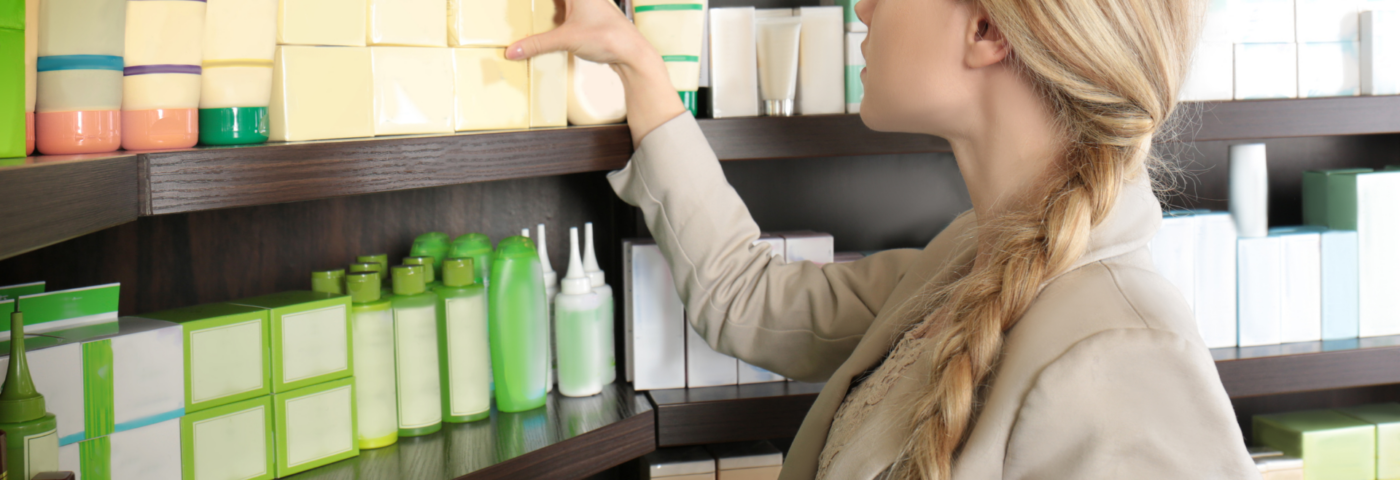Partner Content
By Amarjit Sahota, Founder of Ecovia Intelligence
The Body Shop, the iconic ethical cosmetics retailer, is in the headlines. Once a trailblazer in the sustainable cosmetics industry, the business has gone into administration with over 40 percent of its UK stores set to close. The demise of the Body Shop gives some insight into how fast the sustainability arena is changing.
A few days ago, The Body Shop announced that it would close 82 of its 196 UK stores. Its private equity owner Aurelius filed the company for administration in February after reporting weak trading in December and January. The Body Shop also operates about 1,000 stores and 1,600 franchise branches in 70 countries. Parts of this international business have been sold off, whilst some of its operations in Europe are expected to declare bankruptcy.
The collapse of The Body Shop comes as a surprise as it has only been under new ownership since November. The private equity firm Aurelius acquired The Body Shop from Natura & Co. in a deal worth £207m (EUR 240m). The Brazilian cosmetics giant sold the business after acquiring it from L’Oreal in 2017. Many saw Natura & Co. as a ‘natural fit’ for The Body Shop since the Brazilian company is one of the most sustainable (large) corporations in the beauty industry. Its flagship brand Natura Brasil has pioneered many green initiatives, involving carbon management, green packaging, and ethical sourcing of raw materials.
Natura & Co. sold off The Body Shop to the private equity firm for a fraction of what it paid L’Oreal: £880m (EUR 1.02 billion). Ecovia Intelligence believes the fall of the ethical brand started when its founder sold the business to L’Oreal in 2006. The late Dame Anita Roddick founded The Body Shop as a single store in Brighton in 1976. Believing business could be a force for good, she started making cosmetics with natural ingredients.
The Body Shop was one of the first brands to actively campaign against animal-testing methods. It was also one of the first to introduce refillable packaging, something that has become fashionable in recent years. It was also one of the first companies to ethically source natural ingredients with its Community Trade (fair trade) initiative in 1987. More recently, it was the first beauty brand to use fairly traded plastics in its packaging. In January this year, it was the first major brand to have all its products certified by the Vegan Society.
So, what has been responsible for the demise of The Body Shop? Ecovia Intelligence believes it hasn’t been a case of the ethical brand losing its way, but it stood still. The Body Shop was indeed a trailblazer with many of its green initiatives in the 1980s and 1990s. However, the beauty industry has moved on since then. Sustainability is now an integral part of the industry, with cosmetic brands all undertaking some green / ethical initiatives. In short, being ethical was no longer good enough.

Competition has played an important role. The Body Shop initially offered shoppers an array of natural cosmetics, made from raw materials sourced from the far corners of the world. Natural cosmetics are now well-established, with major high street retailers like Boots and Superdrug also marketing these products under their private labels.
Competition has also come from rival brands. Lush, another cosmetics retail chain, has taken ethical cosmetics to new levels with its green campaigns and innovative natural products. The UK brand is a pioneer with packaging-free products, selling solid shampoos and naked mascara. About a third of its cosmetic products are sold without packaging. It operates almost 900 Lush stores in 50 countries; some new store openings are ‘naked’ i.e. all cosmetic products have no packaging. One can argue that Lush took the ethical baton from The Body Shop shortly after its formation in 1995.
Changing consumer preferences are another factor. The Body Shop initially offered consumers a unique shopping experience offering novel natural products, essential oils, and ethical gift packs. Natural cosmetics are now mainstream, whilst mass market brands are also marketing themselves on sustainability attributes. Ethical consumers no longer look at just natural ingredients, but also consider packaging impacts, carbon footprint, social causes, and related green issues when making purchases. There are questions on whether younger consumers, especially Millennials and Gen Y, resonate with the Body Shop brand.
To conclude, the demise of The Body Shop highlights how competitive stakes are rising in the sustainable cosmetics arena. Once a trailblazer, the iconic brand appears to have been left behind as consumer preferences have changed.
Ecovia Intelligence will be giving a seminar on sustainability schemes & ethical labels and in the cosmetics industry at in-cosmetics global (Paris, 16-18 April).
Come and visit us at stand 1P140. Register for free here
Enjoyed this article? Get more by subscribing to our newsletter!
Feeling inspired to see ingredients and trends in action?
Then why not visit one of the in-cosmetics events around the world?

